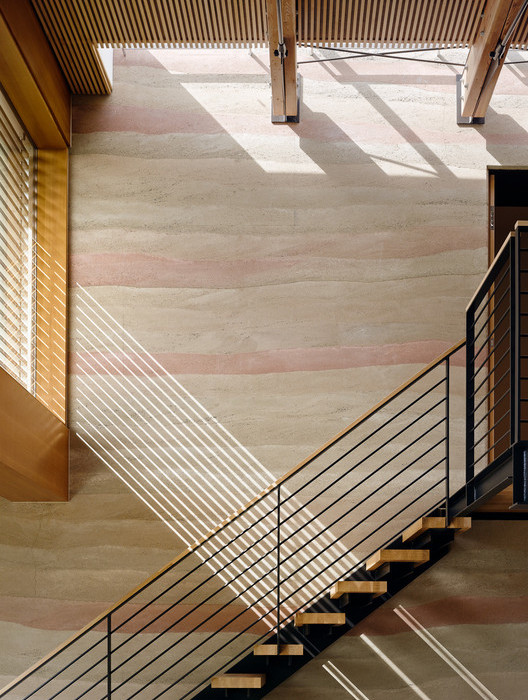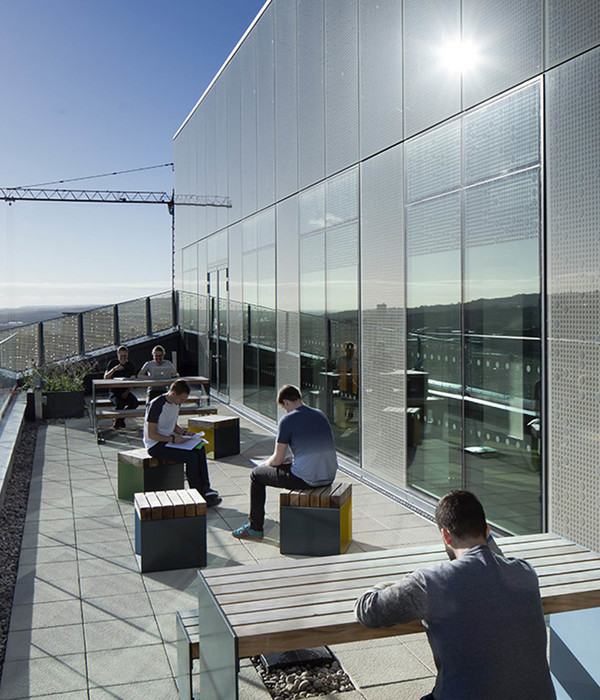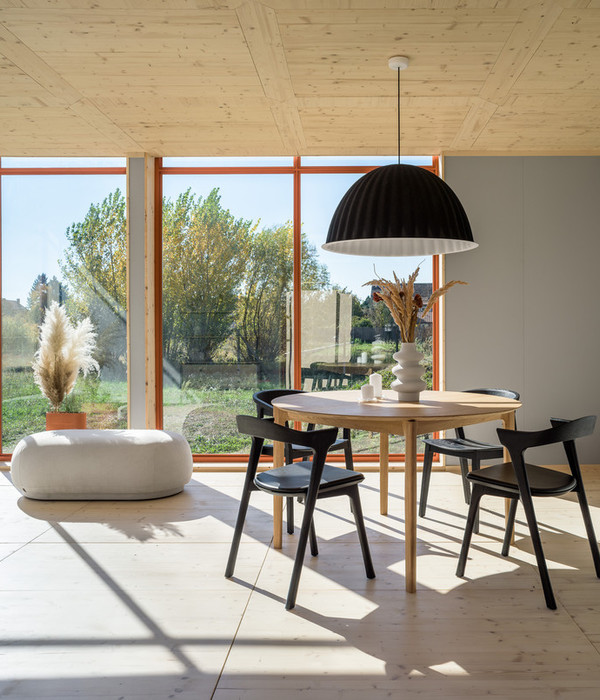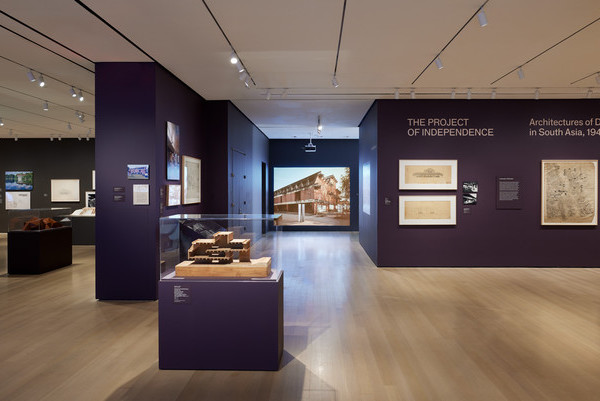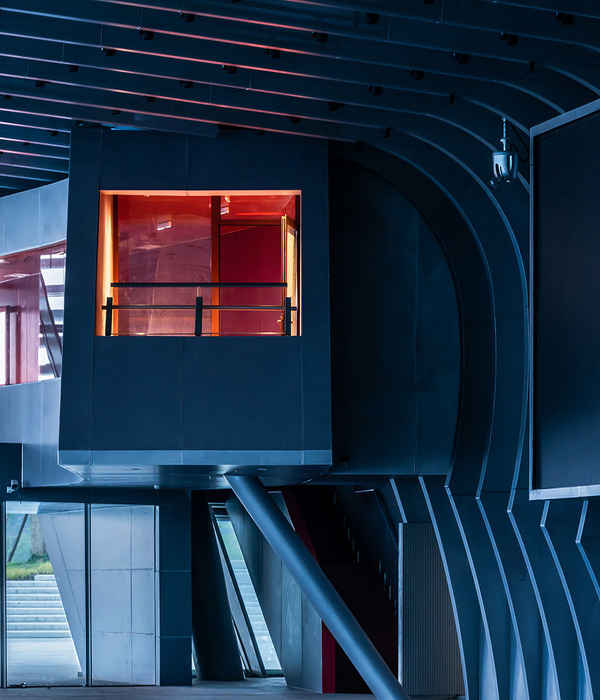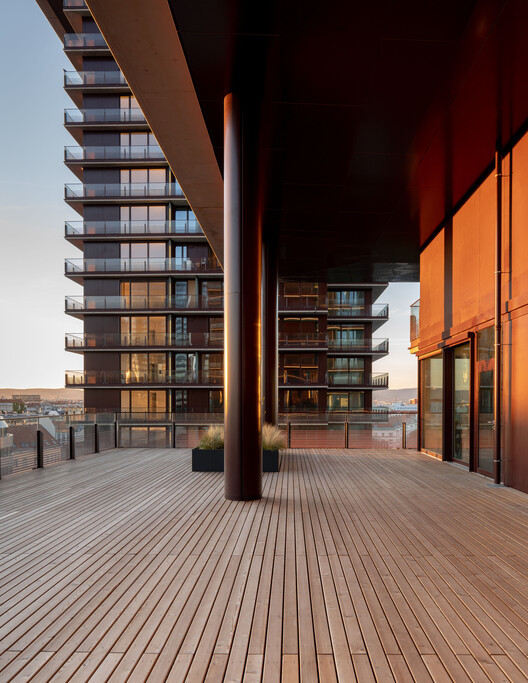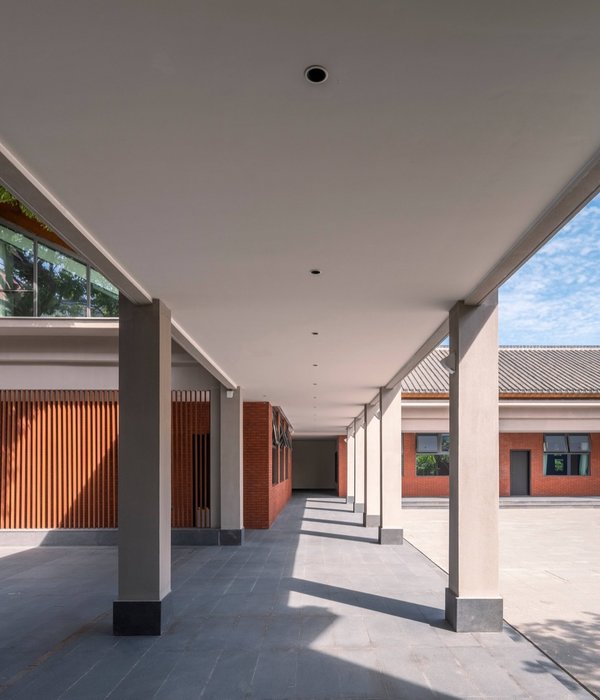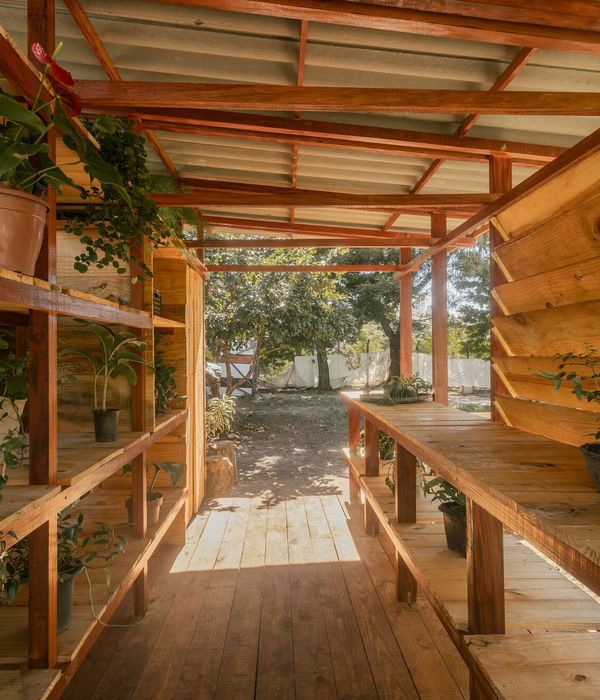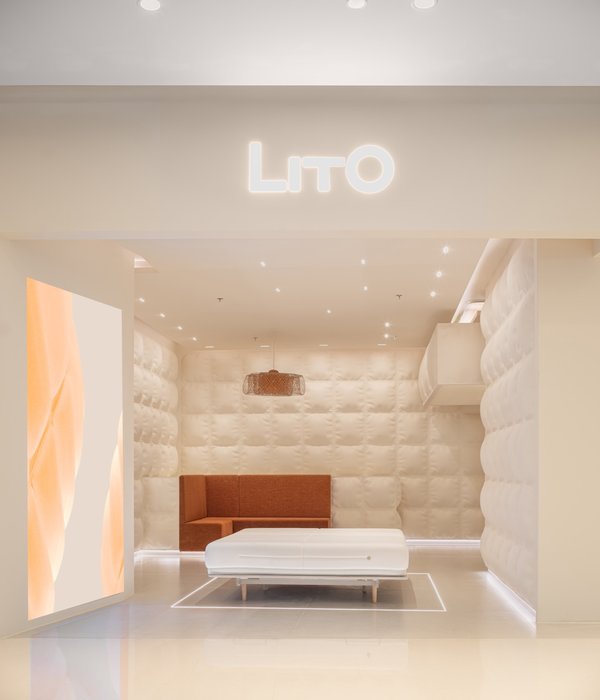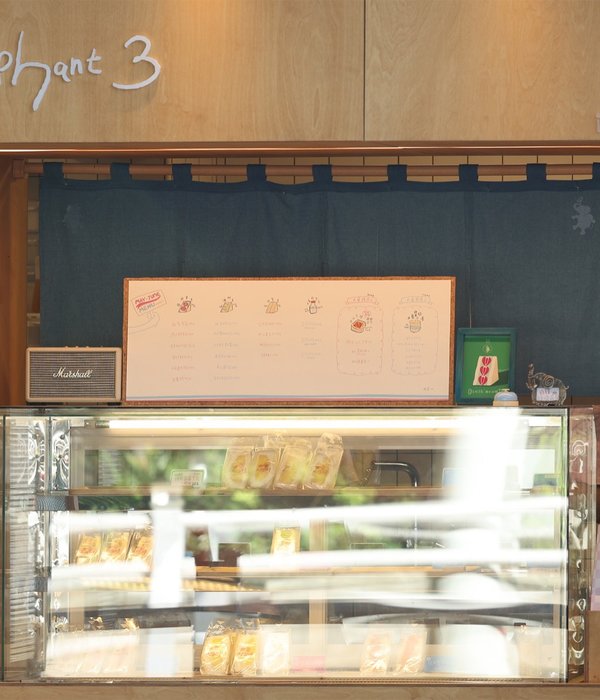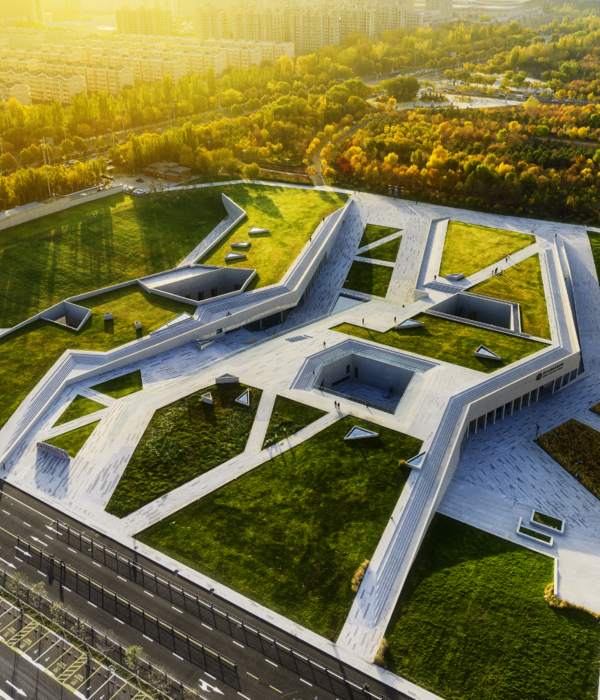Photography by Fran Parente.
Casa Liquida (Liquid House) is an artistic residency in São Paulo conceived by Julia Feldens. Since 2015, Julia and her two children have shared their home in the Sumaré neighbourhood with artists who use the space for experimentation and communal living. The project challenges traditional notions of the domestic space as being intimate and private, transforming it into a place for integration, coexistence and collective creation. So far, over 2,000 artists have passed through the residence.
The recent renovation, undertaken by Luiz Pataro, focused on a house adjacent to the original dwelling, acquired to serve as an annex to the artistic residence. The new building expands the original proposal in space and potential, providing new workspaces, rehearsal rooms, social areas, as well as studios and suites for resident artists.
A striking feature of the intervention is the addition of a carefully juxtaposed metal structure to the original 1960s house. This structure creates a new pathway throughout the residence, connecting and organizing the different spaces. On the ground floor, studios, a kitchen and a rehearsal room are interconnected while also opening up to the patio through the metal gallery. This layout provides flexibility and dynamism to the spaces, allowing them to adapt to the residents’ diverse needs. Going up the external staircase, a more intimate gallery leads to the four suites.
Photography by Fran Parente.
Axonometric sketch of Casa Liquida annex by Luiz Pataro.
The galleries form two long balconies that act as transitional spaces between the new residence and the internal courtyard of the lot. This approach plays with the classic notion of the corridor as a mere passage and transforms it into a versatile space with vast potential for use and social interaction. The annex and the old building engage in a dialogue, reinforcing the collective essence of the residence and granting the central patio remarkable prominence, expanding its potential for daily life and festive occasions.
The balconies culminate in two new spaces created by the metal skeleton: the rehearsal room on the ground floor and the terrace on the first floor. These two new spaces are connected by a second staircase, promoting a fluid and integrated experience throughout the construction. They also open up at the back of the lot, establishing a strong relationship with the garden. In the rehearsal room, this connection is amplified by transparent glass windows that, when opened, allow for a complete integration with the outside area.
Photography by Luiz Pataro.
The use of curtains played a central role in defining the spaces. In the studios, they are used to divide the area among different artists or unify it, creating a larger studio. In the rehearsal room, they allow for the various activities that take place in that space. The external curtains frame the view and play with the concept of a room without a roof, while also softening the rigidity of the metal structure.
Another aspect of the project worth mentioning is how the different levels of the lot were used to enhance and encourage activities within the construction. Taking advantage of the height difference between the houses, situated on a raised platform relative to the patio, a play between the two spaces was created. For example, the rehearsal room was strategically positioned at a lower level to create a grandstand with a privileged view of the hall. Additionally, the level difference between the interior and exterior forms a wide bench, reinforcing the connection with the surrounding nature.
The fluid and cohesive architecture, where the new meets the old, combined with the collaborative and inspiring atmosphere, contributes to making Casa Liquida a playful and creative space, ideal for its purpose as an artistic residency.
[Images courtesy of Luiz Pataro. Photography by Fran Parente and Luiz Pataro.]
{{item.text_origin}}

